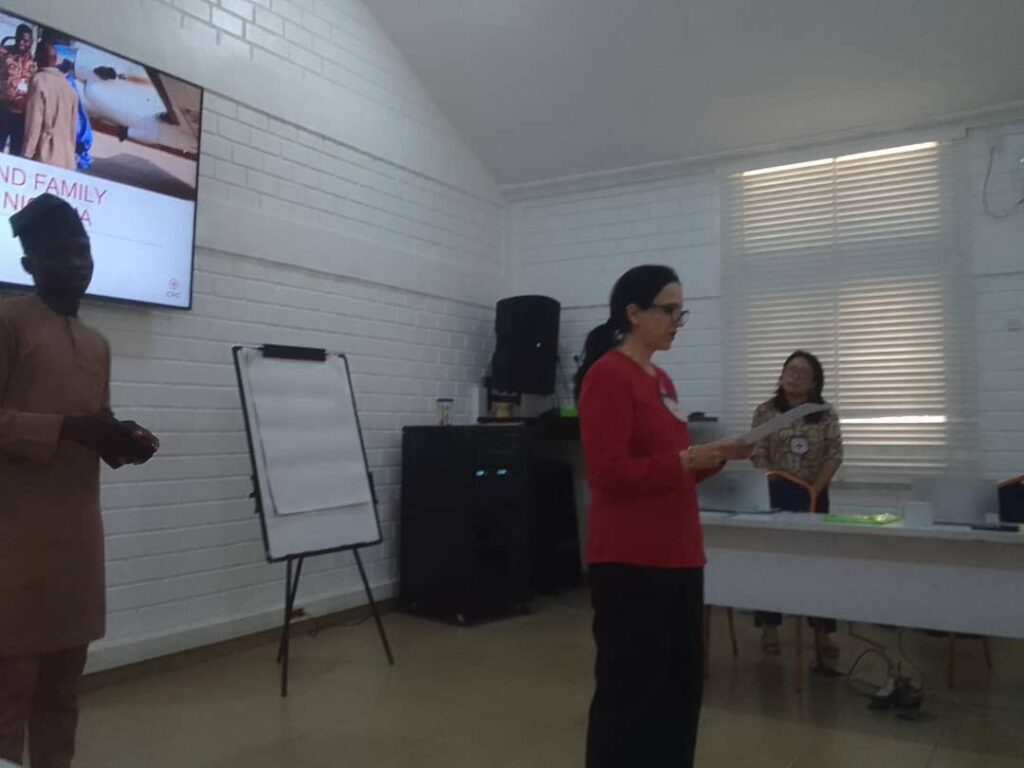The International Committee of the Red Cross (ICRC) has organised a two-day training for working journalists in Borno State on missing persons and family separation in Armed conflict situations and other related issues.
Speaking at the Workshop on the missing and family separation held in Mauduguri on Wednesday, the Head of ICRC sub-delegation in Maiduguri Diana Japaridze, said “In the chaos of armed conflict, situations of violence and disasters, families can become separated in a matter of minutes, creating anguish and vulnerability and sometimes leading to long years of uncertainty about the fate of children, spouses or parents. ”
The head of the delegation is a great pleasure to welcome you all to the ICRC sub-delegation in Maiduguri today for this media workshop on the issue of missing persons and family separation in Nigeria. This is the first one on this topic we host in Maiduguri”
She said, “It is really great to see most of you again following the training on the international humanitarian law in June. I appreciate the great interest you’ve shown in the ICRC and the important areas of work we are doing. In this case, our protection work.”
“Due to the protracted conflict and violence in Nigeria, too many people are missing loved ones, with our caseload of those lost being the highest in Africa. Some people spend years searching for loved ones, often with no result. Families have a right to know their fate, she said.
The ICRC said “preventing separations, locating missing people, reconnecting families and supporting them while they search for their loved ones have been a very important part of what we do with the Nigerian Red Cross Society in order to relieve the suffering of those affected by conflict. “.
“Meanwhile, the issue of missing persons and family separation is multifaceted and intricate. It involves restoring communication or keep family members in touch during emergencies, searching for missing persons with search methods tailored to each situation, engaging with authorities on behalf of families, protection of data, forensic aspects, as well the multiple humanitarian needs of families of missing persons, such legal, social, administrative, economic and health-related difficulties.”, she added.
Diana Japaridze said, “Preventing separations, locating missing people, reconnecting families and supporting them while they search for their loved ones have been a very important part of what we do with the Nigerian Red Cross Society in order to relieve the suffering of those affected by conflict.
Through this workshop, we hope to elaborate on the different aspects and provide you with the needed knowledge to navigate this important topic.
While States should raise public awareness of the problem of missing persons as a fundamental concern of international humanitarian law and human rights law, the mass media must draw the public’s attention to this problem and to the needs of families of missing persons.
“We hope the knowledge and discussions we are going to share and have during the training will help you, the media professionals, research on the topic more deeply, ask better questions, write quality content, and thus report it in a more professional, unbiased, and empathetic manner.
She said each year, 30 August marks the International Day of the Disappeared, adding that the day gives us an opportunity to honour missing people, and to stand in solidarity with their family members.
“This year, the ICRC will be supporting a family association called ‘Initiative for the Well-Being of Displaced & Missing Persons’ Families’ in organising a commemoration event. You are most welcome to cover the event. We also welcome your other initiatives/proposals in covering the topic.”, stressed.
Also in her paper titled ” Protection of family link services of the ICRC, the Protection of Family Links Team Leader, ICRC, María Angélica Mirabal Toscano said there are 24,000 cases of missing persons in Nigeria and that 56 percents were were children at the time of missing.
“The issues of accessibility, family contacts are some of the major challenges of family links and missing persons protection, tracing, restoration in Nigeria”, Mirabal Toscano said.
She said the ICRC there are over 60,000 registered cases of missing persons in the Northeast, with 9,000 active cases in Bormo state and that in the last 6 months from January 2025 to July 2025, 11 missing persons were united with their families.















